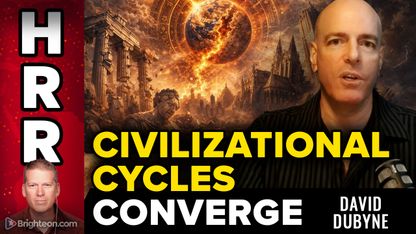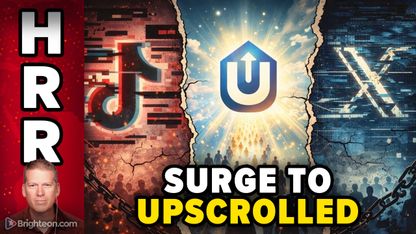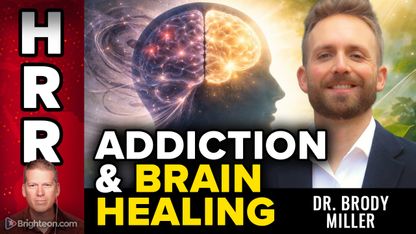
Some were upset that the students were vaccinated before those on the country's list of "high priority groups" like the elderly, but not many people are worried that the students are now at risk of heart inflammation, a negative side effect associated with the Pfizer vaccine.
Student mass vaccination was an "error"
Australian authorities placed Aboriginal citizens and residents from the Torres Strait, a body of water between mainland Australia and New Guinea, wherein 38 islands are inhabited by a native population, on a "high priority groups" list for receiving coronavirus vaccines.
People on the priority list include:
- Indigenous people aged over 16
- Citizens aged 40 to 60
- Individuals with disabilities
- Those receiving elderly care
- Individuals working in health or quarantine frontlines
- People with disabilities and household contacts
Administrators of SJC, a private Catholic school founded by Marist Brothers in 1881, initially consulted the local health authority in New South Wales (NSW Health) about sending Aboriginal students older than 16 for vaccination.
A spokeswoman explained that due to an unspecified error, 163 boarders in year 12 were also vaccinated [at Royal Prince Alfred Hospital]. "Sydney Local Health District apologizes for this error," she concluded.
NSW Health didn't clarify how the error was made but sources, who asked for anonymity since they were not authorized to speak about the matter, revealed that SJC asked about vaccinating Indigenous year 12 students and that it was also invited to send all boarders along for the event.
Ross Tarlinton, SJC's principal, said that the school approached the Sydney Local Health District back in May to ask if students could get vaccinated since many live in the country or are Aboriginal and the proposal was approved by NSW Health.
"Acknowledging that the college does not determine vaccination priority, it welcomed the opportunity to offer the vaccine for students given the approvals provided and for the reasons listed above," added Tarlinton. He also said that SJC continues to "encourage and support members of its community" to get vaccinated as soon as they can.
The SJC students received the first dose of the Pfizer-BioNTech vaccine before the holidays. They will receive their second dose early in term three.
Pfizer-BioNTech vaccine is linked to heart inflammation
Tarlinton didn't discuss the dangers linked to the Pfizer-BioNTech vaccine, such as myocarditis or inflammation of the heart muscle.
The dangers don't stop there, and the vaccine is also linked to another negative side effect: Pericarditis or inflammation of the tissue surrounding the heart.
According to the Children’s Health Defense, from Dec. 14, 2020, to June 25, 2021, there have been a total of 411,931 adverse events linked to coronavirus vaccines.
The Centers for Disease Control and Prevention (CDC) also reports that there have been at least 7,000 deaths among that number. The CDC’s Vaccine Adverse Event Reporting System (VAERS) revealed that there have been 186,196 adverse events for the Pfizer-BioNTech vaccine, with 2,403 deaths and 16,139 serious events within that time period.
Additionally, younger participants in the experimental trial of mRNA vaccine technology have been experiencing more cases of myocarditis, especially those aged 30 years and younger. Younger volunteers have experienced heart inflammation within days or weeks after receiving mRNA vaccines. (Related: At least 18 young people in Connecticut developed heart problems after taking coronavirus vaccine.)
The CDC admits heart inflammation link to coronavirus vaccines
Back in June, the CDC admitted a possible link between mRNA gene therapies and the heart condition in young adults and adolescents, especially males and after receiving the second dose.
According to data from the CDC’s Advisory Committee on Immunization Practices, before June 24, 1,200 people between 16 to 24 were diagnosed with either myocarditis or pericarditis getting at least one dose of an mRNA vaccine.
For example, 18-year-old Isaiah Harris from Arkansas reported that he suffered from myocarditis within 48 hours of receiving his second dose of the Pfizer vaccine.
On a podcast, Harris told Robert F. Kennedy, Jr. that he experienced severe chest pains after receiving his second.
Harris added that several hours after attending his community college graduation, he started experiencing breathing difficulties. He was then hospitalized and he suffered a heart attack while waiting for at least six hours for treatment.
Harris spent four days in the hospital before being discharged with medication to help reduce the swelling in his heart. Harris lamented that the hospital staff who treated him "would not acknowledge his condition was anything to do with the vaccine."
Instead, the staff said that the condition was caused by a virus that he was infected with and not the dangerous vaccine. Harris said that he thought he was required to get vaccinated since he plans to enter medical school.
He added that he gave in and got vaccinated, especially since there was a lot of pressure on Americans to get vaccinated, even if they didn't want to do so for the greater good, as claimed by Big Pharma. However, before inoculation, he believed there were no negative side effects to worry about, yet his experience proved otherwise.
Visit VaccineInjuryNews.com to learn more about the many harmful side effects linked to different coronavirus vaccines.
Sources include:
Please contact us for more information.























